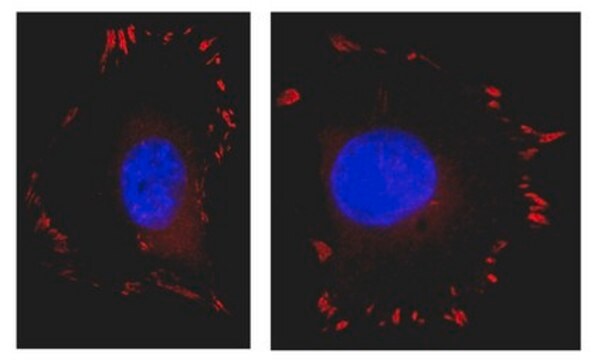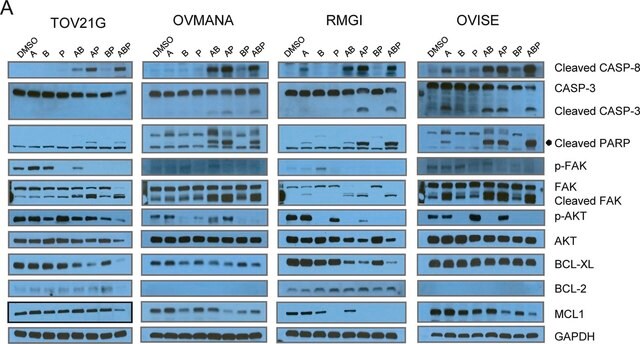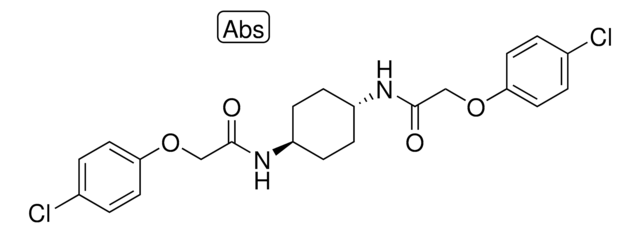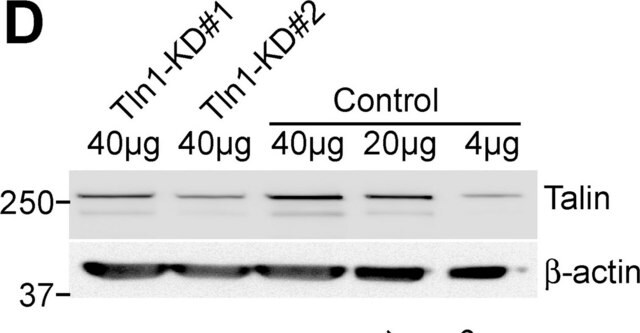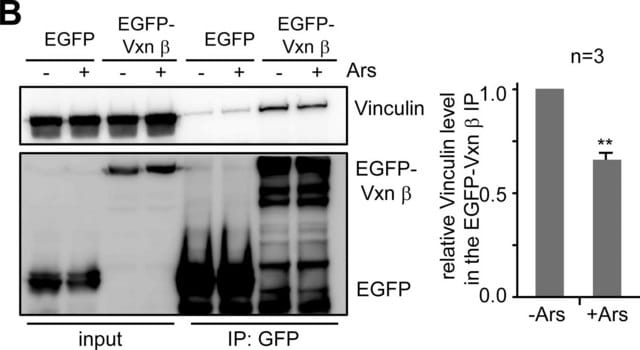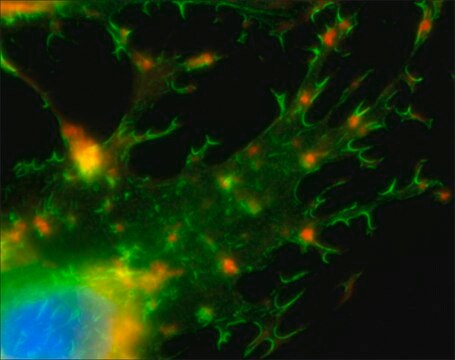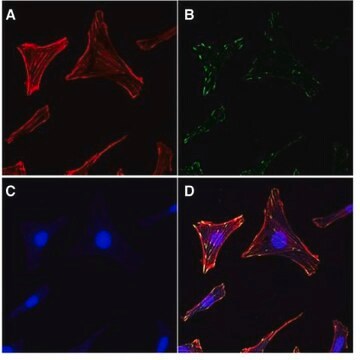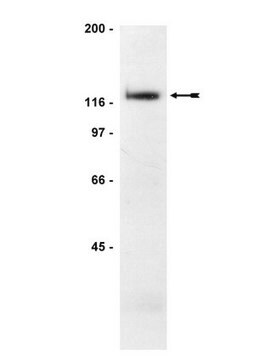16-233
Anti-FAK Antibody, clone 4.47, Alexa Fluor™ 488 conjugate
clone 4.47, Upstate®, from mouse
Synonym(e):
Anti-FADK, Anti-FADK 1, Anti-FAK, Anti-FAK1, Anti-FRNK, Anti-PPP1R71, Anti-p125FAK, Anti-pp125FAK
About This Item
Empfohlene Produkte
Biologische Quelle
mouse
Qualitätsniveau
Konjugat
ALEXA FLUOR™ 488
Antikörperform
purified immunoglobulin
Antikörper-Produkttyp
primary antibodies
Klon
4.47, monoclonal
Speziesreaktivität
human, rat, mouse
Hersteller/Markenname
Upstate®
Methode(n)
flow cytometry: suitable
immunocytochemistry: suitable
western blot: suitable
Isotyp
IgG1
NCBI-Hinterlegungsnummer
UniProt-Hinterlegungsnummer
Versandbedingung
wet ice
Posttranslationale Modifikation Target
unmodified
Angaben zum Gen
human ... PTK2(5747)
Spezifität
Immunogen
Anwendung
Zelluläre Signaltransduktion
Cytoskelettale Signalübertragung
Qualität
Zielbeschreibung
Physikalische Form
Lagerung und Haltbarkeit
Rechtliche Hinweise
Haftungsausschluss
Unless otherwise stated in our catalog or other company documentation accompanying the product(s), our products are intended for research use only and are not to be used for any other purpose, which includes but is not limited to, unauthorized commercial uses, in vitro diagnostic uses, ex vivo or in vivo therapeutic uses or any type of consumption or application to humans or animals.
Sie haben nicht das passende Produkt gefunden?
Probieren Sie unser Produkt-Auswahlhilfe. aus.
Lagerklassenschlüssel
12 - Non Combustible Liquids
WGK
WGK 2
Flammpunkt (°F)
Not applicable
Flammpunkt (°C)
Not applicable
Analysenzertifikate (COA)
Suchen Sie nach Analysenzertifikate (COA), indem Sie die Lot-/Chargennummer des Produkts eingeben. Lot- und Chargennummern sind auf dem Produktetikett hinter den Wörtern ‘Lot’ oder ‘Batch’ (Lot oder Charge) zu finden.
Besitzen Sie dieses Produkt bereits?
In der Dokumentenbibliothek finden Sie die Dokumentation zu den Produkten, die Sie kürzlich erworben haben.
Unser Team von Wissenschaftlern verfügt über Erfahrung in allen Forschungsbereichen einschließlich Life Science, Materialwissenschaften, chemischer Synthese, Chromatographie, Analytik und vielen mehr..
Setzen Sie sich mit dem technischen Dienst in Verbindung.